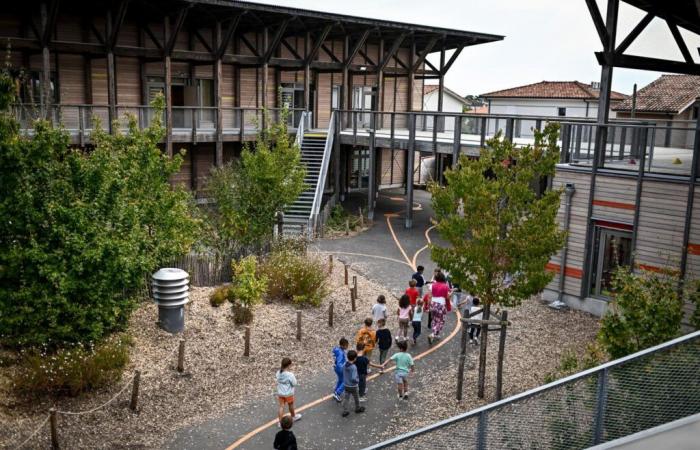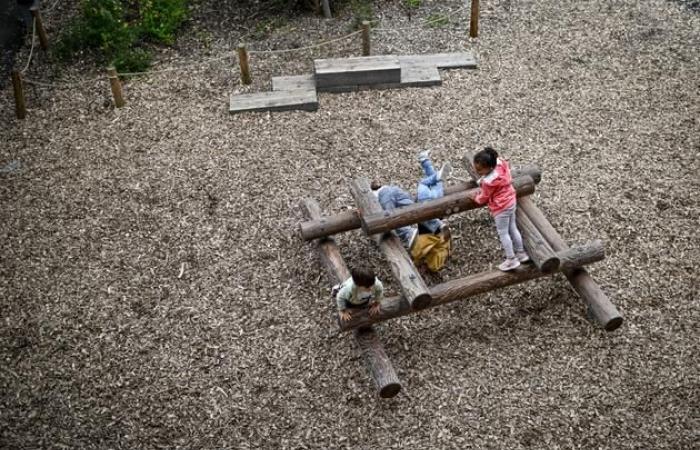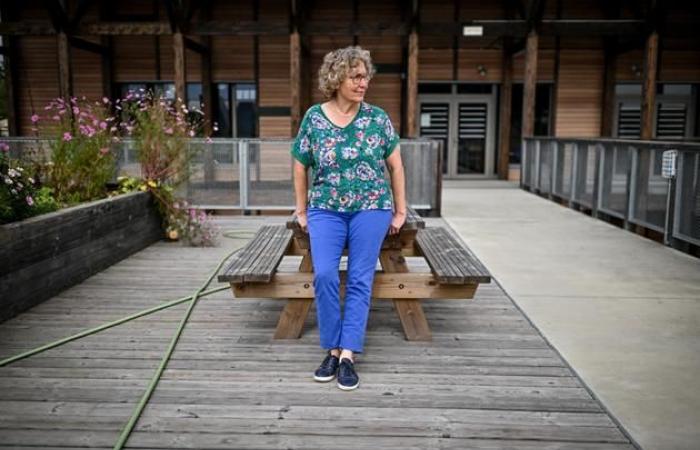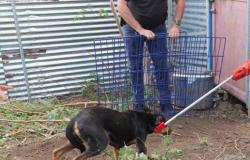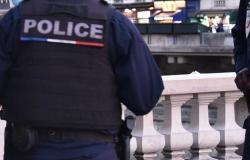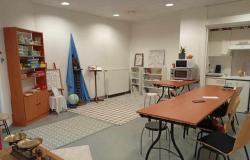From the first glance, the building, entirely made of wood, is intriguing. And when you pass through the doors of the main courtyard, the slide installed in its center is even more surprising. So what is this school, born in 2022 under the leadership of the municipality led by Brigitte Terraza (PS) and which receives 250 students, from the small nursery section to CM2?
The idea of creating a new school group to respond to the increase in the population of this city, located around fifteen minutes by car from Bordeaux, was announced in 2017. From the start, Brigitte Terraza, who underlines the “ecological fiber” which she shares with her municipal team, sets out the ambition to design an establishment which would do better than the minimum expected from an environmental perspective. If the building is ” shell “Frida-Kahlo’s project will be more global. That of a school that combats gender stereotypes and creates a close link between nature, students and the entire educational team.
Entirely made of wood
The “shell”, first. Frida-Kahlo is one of the rare schools in France to be E4C2 certified, the highest level of the “Positive energy and carbon reduction buildings” label, created in 2018 by the Ministry of Housing. It was designed by architect Chloé Bodart, one of the winners of the 10+ 1 Architecture Prize.
The structure is entirely designed in wood, from the cladding to the insulation lined with wood wool, including the games for the children. Photovoltaic panels cover 72% of the school’s electricity needs. Heating and hot water are provided by a wooden pellet boiler. “The school consumes half as much as the new standard for an equivalent project, and four times less than other school groups in Bruges”explains Brigitte Terraza. Result: if the project exceeded the cost of a traditional school by 12%, with its total budget of 13 million euros, the additional cost has already been offset thanks to the energy autonomy of the establishment.
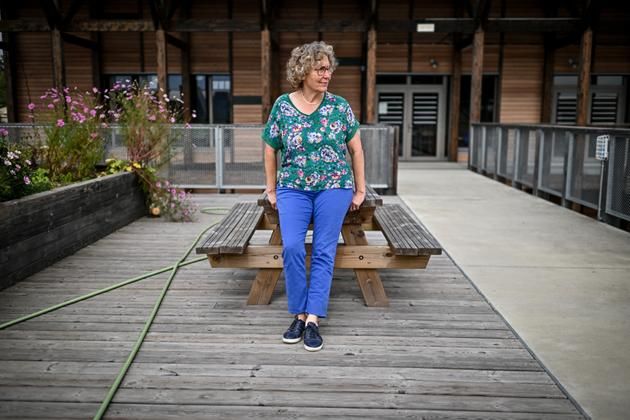
Let’s go up to the roof of the school. A vegetable garden was installed there, where seeds were planted by the students. The vegetables produced are included in the meals of those enrolled in after-school classes on Wednesdays, and sometimes distributed to families. The mayor of Bruges, who guides us, points below to curious pipes emerging in the playground. It is a Canadian well system. It draws in outside air, cools it in an underground network (where the temperature is on average 12°C) before releasing it into the classrooms. In summer, it acts as air conditioning. In winter, this air, this time heated underground, supplements the wood boiler. “During the summer of 2022, marked by the heatwave, it was cool in the classrooms before opening to students”recalls the head of the establishment, Karine Junca-Perruchot. A summer also particularly marked, in Gironde, by the fires, which devastated 30,000 hectares of forest in the department.
You have 62.87% of this article left to read. The rest is reserved for subscribers.

